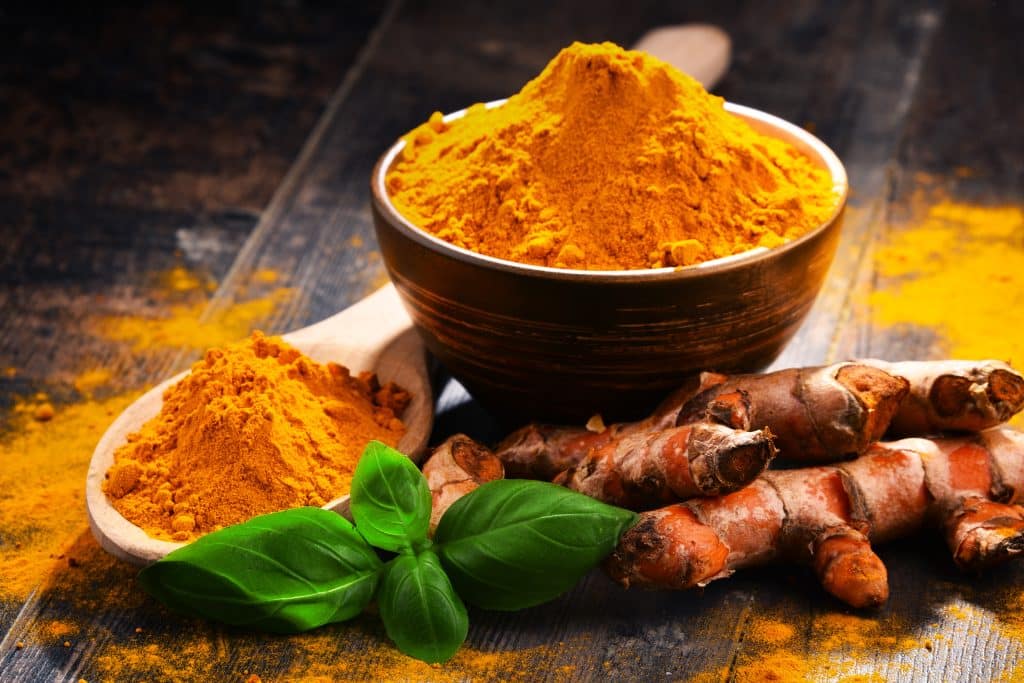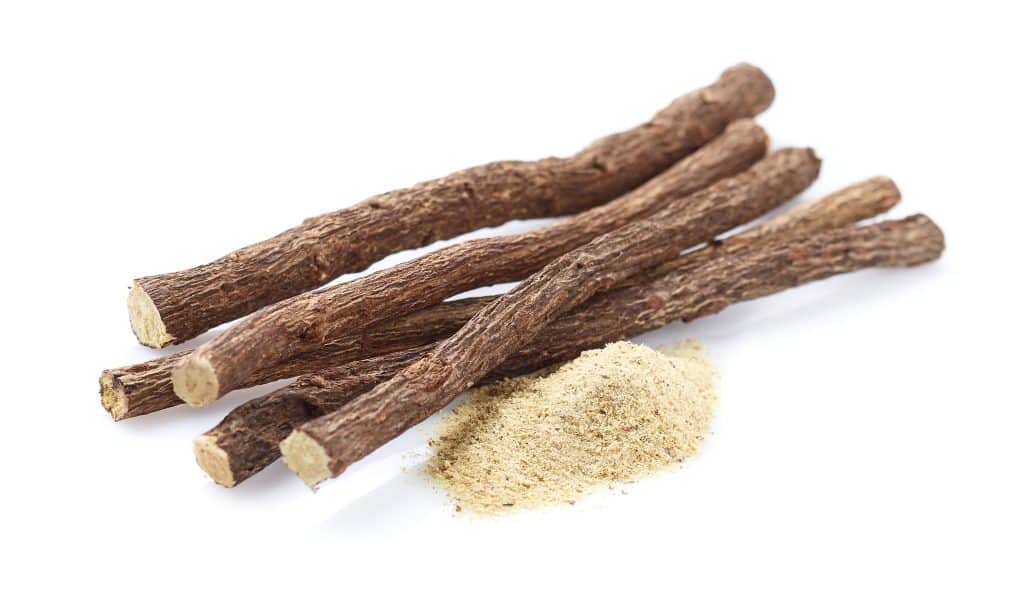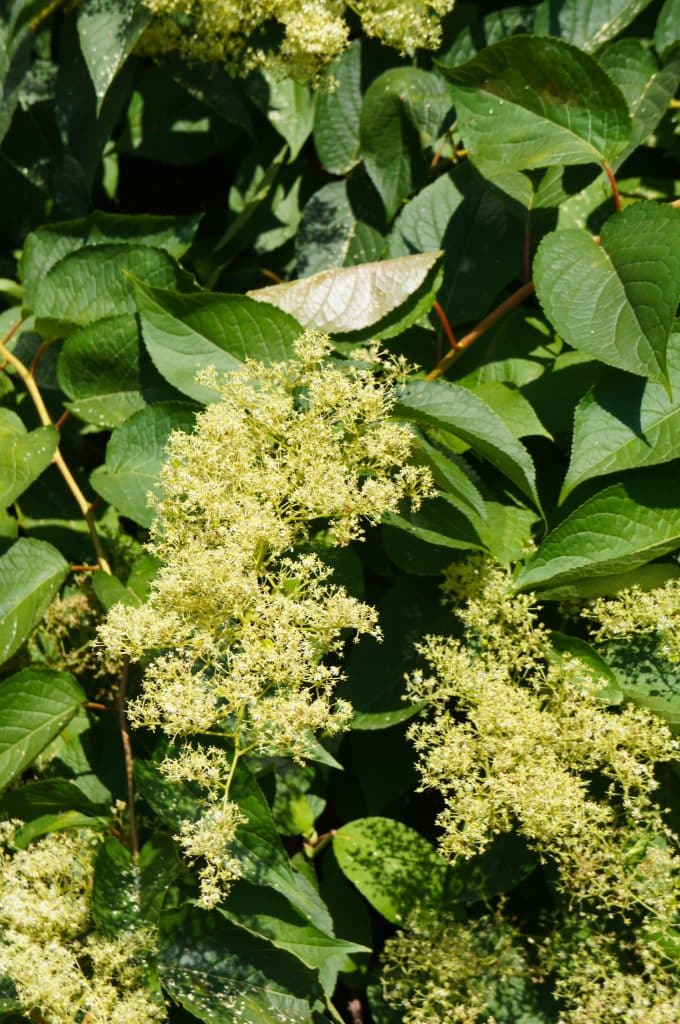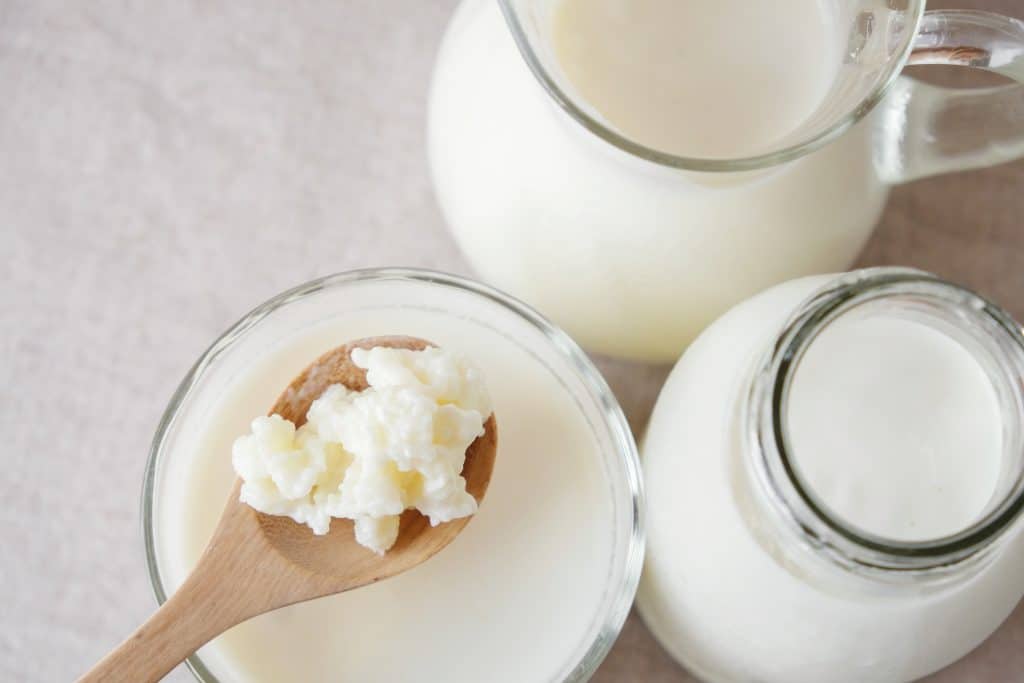Natural Solutions For Common Autoimmune Diseases – Find Relief Naturally
Autoimmune diseases cause debilitating symptoms that do not respond well to traditional treatments, making them difficult to manage and cope with. Fortunately, natural remedies are often more effective in managing the symptoms of some autoimmune diseases than traditional medications.
Here we will discuss the potential benefits of natural solutions for the treatment of common autoimmune ailments and provide information on various herbal remedies, dietary changes, supplements, exercise, and mindfulness practices that are known to be beneficial.
Natural Solutions For Common Autoimmune Diseases – Herbal Remedies
Herbal remedies are becoming increasingly popular for the treatment of various illnesses, including autoimmune diseases. The most common herbal remedies used to reduce symptoms of autoimmune disease include turmeric, ginger root, licorice root, ginseng, and Tripterygium.
Natural Solutions For Common Autoimmune Diseases – Turmeric
Turmeric is an herb that is frequently used in the treatment of autoimmune disorders, as it has strong anti-inflammatory properties and can help to reduce pain. Turmeric has been used for centuries in traditional Indian medicine and is now gaining popularity as an alternative remedy for autoimmune conditions.
Turmeric contains curcumin, a compound that has been shown to reduce inflammation and provide other health benefits. Studies have demonstrated that turmeric can help reduce the pain of arthritis, Crohn’s disease, multiple sclerosis, psoriasis and other inflammatory conditions. It has also been used to treat asthma, eczema, and lupus.
Turmeric is easy to incorporate into your diet, as it can be taken in supplement form or added to food. Adding turmeric to your meals is a simple and delicious way to get the health benefits.1 2

Natural Solutions For Common Autoimmune Diseases – Ginger Root
Ginger root has long been used to treat autoimmune conditions due to its anti-inflammatory and antioxidant effects. Studies have shown that ginger can be beneficial in managing symptoms of a variety of autoimmune diseases, including rheumatoid arthritis (RA), multiple sclerosis (MS), psoriasis, lupus, and inflammatory bowel disease (IBD).
When consumed regularly, ginger root can reduce inflammation in the joints and digestive tract, improve immunity, and create a more balanced environment which helps to reduce symptoms of autoimmune diseases. Studies also suggest that ginger may be beneficial for managing chronic pain associated with autoimmune conditions.
Ginger root can be consumed in several forms such as fresh root, dried powder, capsule supplements, or tea. Start slowly with small amounts of ginger and increase gradually over time to ensure optimal results. Ginger root has a host of other health benefits that make it an excellent addition to any healthy diet. It can help reduce nausea, aid digestion, and boost the immune system.3 4
Natural Solutions For Common Autoimmune Diseases – Licorice Root
Licorice root helps to balance hormones, a common issue with autoimmune disorders. Licorice root is an herb that has been used historically to treat autoimmune conditions. This herb can be found in many health food stores and pharmaceuticals, often under the name glycyrrhiza glabra. It has anti-inflammatory, antioxidant, antiviral, and immunomodulatory properties which make it beneficial for people with inflammatory or autoimmune conditions.
The active ingredients in licorice root that are thought to be responsible for its therapeutic effects include glycyrrhizin, flavonoids, sterols, and plant lignans. The herb can be consumed as a tea or supplement. It is important to follow dosing instructions carefully and not exceed recommended doses since the herb has some potential side effects such as fluid retention, increased blood pressure, and potassium loss. Overall, licorice root may be beneficial for those with autoimmune conditions due to its anti-inflammatory and immunomodulatory properties.5 6

Natural Solutions For Common Autoimmune Diseases – Ginseng
Ginseng is a powerful herb known for its ability to treat and manage autoimmune diseases. It has been used in traditional Chinese medicine for centuries, as it has been shown to help reduce inflammation and boost the body’s immune system response. Studies have found that ginseng can be beneficial in treating common autoimmune diseases such as lupus, rheumatoid arthritis, Crohn’s disease, and multiple sclerosis. In addition to its anti-inflammatory properties, ginseng is also rich in antioxidants that can help reduce oxidative stress and protect the body from further damage caused by autoimmune diseases.
Ginseng has been found to have a positive effect on symptoms associated with autoimmune diseases. It can reduce fatigue and improve cognitive functioning, reduce joint discomfort and swelling caused by rheumatoid arthritis, and boost the immune system to help fight off infections.
Natural Solutions For Common Autoimmune Diseases – Tripterygium
Tripterygium, also known as Lei gong teng in traditional Chinese medicine, is an herb used to treat autoimmune conditions. The active ingredient in tripterygium, triptolide, has anti-inflammatory and immunosuppressive properties which can help improve symptoms of autoimmune diseases like lupus and rheumatoid arthritis. Studies have shown that it can reduce joint pain and swelling, improve physical functioning, and even help protect against organ damage caused by autoimmune diseases.
However, tripterygium can also have serious side effects in some patients. It is not recommended for those with a history of liver or kidney disease due to the possible adverse reactions that may occur. Additionally, it should be used with caution in pregnant women due to lack of safety data.8 9

Natural Solutions For Common Autoimmune Diseases – Dietary Changes
Making dietary changes can have a huge impact on the symptoms of autoimmune disorders. Eating a balanced, nutrient-dense diet with plenty of whole foods such as fruits, vegetables, and grass-fed meat is key to managing autoimmune diseases. It is important to avoid processed and sugary foods, as they may worsen symptoms.10
Read more about diet and autoimmune conditions.
Natural Solutions For Common Autoimmune Diseases – Omega-3 Fatty Acids
Omega-3 fatty acids are known for their anti-inflammatory properties, as well as their ability to regulate the immune system. They help to reduce the production of pro-inflammatory molecules, which can alleviate pain and inflammation associated with autoimmune diseases. Studies suggest that omega-3s may also improve immune system functioning, helping to prevent further progression of these conditions.
The best sources of omega-3 fatty acids are cold water fish such as salmon, mackerel, sardines, and herring. For those who cannot consume fish or choose not to, other sources of omega-3s include grass-fed meat, flax seeds, and walnuts.11 12
Natural Solutions For Common Autoimmune Diseases – Probiotics
Probiotics have also been studied for their potential in treating autoimmune diseases, as they may help to balance gut bacteria and reduce inflammation. Probiotics have been found to boost the immune system, improve digestion, regulate hormones, and even prevent some chronic diseases.
You can get probiotics from certain foods, such as yogurt, kefir, sauerkraut, and kimchi. These fermented foods contain naturally-occurring beneficial bacteria that can help support your digestive system and reduce inflammation associated with autoimmune conditions.13 14

Natural Solutions For Common Autoimmune Diseases – Vitamin E
Vitamin E is a therapeutic agent in the management of autoimmune conditions due to its antioxidant, anti-inflammatory, and immune-modulating properties. Studies have shown that supplementation with vitamin E may help reduce symptoms associated with certain autoimmune diseases. In particular, research suggests that it may be beneficial for patients with rheumatoid arthritis, multiple sclerosis, and systemic lupus erythematosus.
Vitamin E reduces inflammation by inhibiting the production of pro-inflammatory cytokines and blocking pathways that lead to autoimmunity. It can also act as an antioxidant, scavenging free radicals that can contribute to tissue damage in autoimmune diseases. Furthermore, it has been suggested that vitamin E may modulate the immune system by increasing the number of regulatory T cells, which can help reduce inflammation.15 16
Natural Solutions For Common Autoimmune Diseases – Vitamin D
Vitamin D is important for overall health and can be beneficial in managing autoimmune symptoms, especially for those who live in colder climates where natural sunlight is limited.
When it comes to autoimmune conditions, such as MS, lupus, and RA. Vitamin D can be a critical factor in managing them. Vitamin D is important for regulating the immune system and maintaining healthy bones, muscles, and teeth. Studies have shown that people with autoimmune diseases often have low levels of vitamin D in their blood, which can lead to a weakened immune system and an increased risk of flare-ups.
The best way to increase Vitamin D levels is to get some sun exposure when possible. Eating a healthy diet that includes foods with high levels of Vitamin D, such as salmon and mushrooms, can help keep your immune system strong.17 18
Read more about the connection between Vitamin D levels and autoimmune conditions.
Natural Solutions For Common Autoimmune Diseases – Exercise
Staying physically active is also important for those who suffer from autoimmune disorders. While vigorous exercise may worsen symptoms, gentle forms of activity such as yoga, tai chi, or walking can help to reduce inflammation and improve overall well being.19
Natural Solutions For Common Autoimmune Diseases – Mindfulness
In addition to physical activity, mindfulness practices such as meditation and deep breathing exercises are becoming increasingly popular for those who suffer from autoimmune diseases. These activities can help to reduce stress and anxiety, which can worsen the symptoms of autoimmune disorders. Writing in a journal or doing art therapy may also be beneficial, as it provides an outlet for emotions that can be difficult to manage without support.20
Natural Solutions For Common Autoimmune Diseases – Find Relief Naturally
Natural solutions can play a significant role in managing the symptoms of autoimmune diseases. Herbal remedies, dietary changes, physical activity, and mindfulness practices address the symptoms of autoimmune disorders with natural solutions.
Read more about what causes autoimmune disorders.
References
1 Bright JJ. Curcumin and autoimmune disease. Adv Exp Med Biol. 2007;595:425-51. doi: 10.1007/978-0-387-46401-5_19. PMID: 17569223.
2 Yang M, Akbar U, Mohan C. Curcumin in Autoimmune and Rheumatic Diseases. Nutrients. 2019 May 2;11(5):1004. doi: 10.3390/nu11051004. PMID: 31052496; PMCID: PMC6566522.
3 Ballester P, Cerdá B, Arcusa R, Marhuenda J, Yamedjeu K, Zafrilla P. Effect of Ginger on Inflammatory Diseases. Molecules. 2022 Oct 25;27(21):7223. doi: 10.3390/molecules27217223. PMID: 36364048; PMCID: PMC9654013.
4 Aryaeian N, Shahram F, Mahmoudi M, Tavakoli H, Yousefi B, Arablou T, Jafari Karegar S. The effect of ginger supplementation on some immunity and inflammation intermediate genes expression in patients with active Rheumatoid Arthritis. Gene. 2019 May 25;698:179-185. doi: 10.1016/j.gene.2019.01.048. Epub 2019 Mar 4. PMID: 30844477.
5 Wahab S, Annadurai S, Abullais SS, Das G, Ahmad W, Ahmad MF, Kandasamy G, Vasudevan R, Ali MS, Amir M. Glycyrrhiza glabra (Licorice): A Comprehensive Review on Its Phytochemistry, Biological Activities, Clinical Evidence and Toxicology. Plants (Basel). 2021 Dec 14;10(12):2751. doi: 10.3390/plants10122751. PMID: 34961221; PMCID: PMC8703329.
6 Kwon YJ, Son DH, Chung TH, Lee YJ. A Review of the Pharmacological Efficacy and Safety of Licorice Root from Corroborative Clinical Trial Findings. J Med Food. 2020 Jan;23(1):12-20. doi: 10.1089/jmf.2019.4459. Epub 2019 Dec 23. PMID: 31874059.
7 Lee JI, Park KS, Cho IH. Panax ginseng: a candidate herbal medicine for autoimmune disease. J Ginseng Res. 2019 Jul;43(3):342-348. doi: 10.1016/j.jgr.2018.10.002. Epub 2018 Oct 26. PMID: 31308804; PMCID: PMC6606836.
8 Zhang T, Rao Q, Dai M, Wu ZE, Zhao Q, Li F. Tripterygium wilfordii protects against an animal model of autoimmune hepatitis. J Ethnopharmacol. 2023 Jun 12;309:116365. doi: 10.1016/j.jep.2023.116365. Epub 2023 Mar 10. PMID: 36907478.
9 Ziaei S, Halaby R. Immunosuppressive, anti-inflammatory and anti-cancer properties of triptolide: A mini review. Avicenna J Phytomed. 2016 Mar-Apr;6(2):149-64. PMID: 27222828; PMCID: PMC4877967.
10 Ma X, Nan F, Liang H, Shu P, Fan X, Song X, Hou Y, Zhang D. Excessive intake of sugar: An accomplice of inflammation. Front Immunol. 2022 Aug 31;13:988481. doi: 10.3389/fimmu.2022.988481. PMID: 36119103; PMCID: PMC9471313.
11 Simopoulos AP. Omega-3 fatty acids in inflammation and autoimmune diseases. J Am Coll Nutr. 2002 Dec;21(6):495-505. doi: 10.1080/07315724.2002.10719248. PMID: 12480795.
12 Bland JS. Therapeutic Use of Omega-3 Fatty Acids for Immune Disorders In Search of the Ideal Omega-3 Supplement. Integr Med (Encinitas). 2022 Nov;21(5):14-18. PMID: 36643210; PMCID: PMC9831136.
13 Liu Y, Alookaran JJ, Rhoads JM. Probiotics in Autoimmune and Inflammatory Disorders. Nutrients. 2018 Oct 18;10(10):1537. doi: 10.3390/nu10101537. PMID: 30340338; PMCID: PMC6213508.
14 Mangalam AK, Yadav M, Yadav R. The Emerging World of Microbiome in Autoimmune Disorders: Opportunities and Challenges. Indian J Rheumatol. 2021 Mar;16(1):57-72. doi: 10.4103/injr.injr_210_20. Epub 2021 Mar 23. PMID: 34531642; PMCID: PMC8442979.
15 Ayres S Jr, Mihan R. Is vitamin E involved in the autoimmune mechanism? Cutis. 1978 Mar;21(3):321-5. PMID: 343998.
16 Islam MA, Khandker SS, Kotyla PJ, Hassan R. Immunomodulatory Effects of Diet and Nutrients in Systemic Lupus Erythematosus (SLE): A Systematic Review. Front Immunol. 2020 Jul 22;11:1477. doi: 10.3389/fimmu.2020.01477. PMID: 32793202; PMCID: PMC7387408.
17 Yang CY, Leung PS, Adamopoulos IE, Gershwin ME. The implication of vitamin D and autoimmunity: a comprehensive review. Clin Rev Allergy Immunol. 2013 Oct;45(2):217-26. doi: 10.1007/s12016-013-8361-3. PMID: 23359064; PMCID: PMC6047889.
18 Sîrbe C, Rednic S, Grama A, Pop TL. An Update on the Effects of Vitamin D on the Immune System and Autoimmune Diseases. Int J Mol Sci. 2022 Aug 29;23(17):9784. doi: 10.3390/ijms23179784. PMID: 36077185; PMCID: PMC9456003.
19 Sharif K, Watad A, Bragazzi NL, Lichtbroun M, Amital H, Shoenfeld Y. Physical activity and autoimmune diseases: Get moving and manage the disease. Autoimmun Rev. 2018 Jan;17(1):53-72. doi: 10.1016/j.autrev.2017.11.010. Epub 2017 Nov 3. PMID: 29108826.
20 Black DS, Slavich GM. Mindfulness meditation and the immune system: a systematic review of randomized controlled trials. Ann N Y Acad Sci. 2016 Jun;1373(1):13-24. doi: 10.1111/nyas.12998. Epub 2016 Jan 21. PMID: 26799456; PMCID: PMC4940234.




